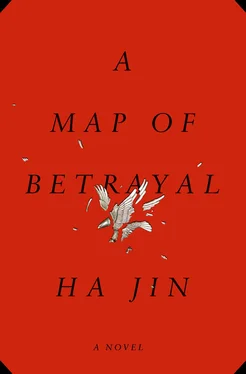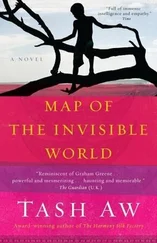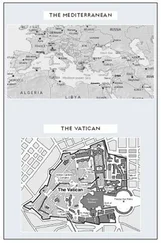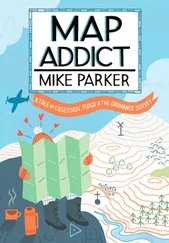Suzie was in tears after she came for the second time. Her hair was mussed, but her flushed cheeks gave her a youthful glow. For a moment even her neck was ruddy. She confessed, “You made me feel like a woman again. Guess I won’t be able to sleep well for a couple of days. I will miss you.”
Her words unsettled Gary, and he checked his impulse to ask in jest what part of him she would miss. Then it struck him that she too was a lonely soul, homesick and restless in spite of her composed façade. What amazed both of them was that, lying shoulder to shoulder in bed, they became chatterboxes, as if there were endless things they could talk about — from their childhoods in the provinces to their college years in Beijing, from the local foods they missed to the mountains and beach resorts they had both been to, from the family members persecuted in the Land Reform Movement to the class statuses in China’s countryside now, from the differences in the sense of beauty between Asians and Westerners to some plain-featured Chinese women married by handsome foreign men. They talked and talked until around one a.m., when he had to climb out of bed and go home.
It felt chilly outside. Gary fastened the middle button on his light duffle coat. A thin blaze of moon was high in the sky, which was thick with stars, a few twinkling through the spiky branches. An oak tree dropped an acorn on a nearby roof, the nut thrumming down the shingles until it hit the ground with a tiny thud. Walking in the limpid moonlight to his car parked behind Suzie’s building, for some reason Gary remembered the English expression “talk a blue streak.” And he envisioned the two of them caged like a pair of birds that could chirp and warble only to each other.
IN THE PRACTICE OF ESPIONAGE, gathering intelligence is just the first step. After that, there is the task of analyzing the information, and then comes the challenge of how to make the best use of it. So much intelligence had gone through Gary’s hands these last few months that he couldn’t possibly photograph all the valuable pages, so he had adopted the role of analyst as well. He chose what he believed were important passages, and compiled and synthesized them to make a coherent report. In his analyses he highlighted the U.S. awareness of the catastrophic situation in China. He meant to convey to the Chinese leaders that if they didn’t get out of their mess soon, China might open itself to attacks from other countries. Unlike the United States, with oceans on the east and west and no powerful country to the south or north, a weak China, surrounded by hostile neighbors, many of which had territorial disputes with it, would be like an exhausted body floating in shark-infested water. He knew his analyses might sound a little far-fetched at times, but he couldn’t help himself and even mentally cursed the stupid Chinese leaders.
He went to Taipei in late December 1961 and from there made a short trip to Hong Kong. He told Nellie that his cousin’s mother-in-law had just died, so he felt obligated to pay a visit, but his cousin was living with his in-laws in Taiwan now. Bingwen was in Hong Kong to meet him again. The man looked sickly and emaciated, which further convinced Gary of the severity of the famine. But his friend shook his bushy head and said, “I just had hernia surgery and haven’t fully recuperated yet. Everything’s swell back home.”
That couldn’t have been true and must have been what Bingwen had been instructed to tell Gary. Plainly the man had a famished look, and when they dined in restaurants, Bingwen would order a tableful of food for just the two of them and would wolf down whatever he could. He informed Gary of a big promotion — now his rank was the sixteenth, which was equal to a major’s in the army. Gary was pleased, and together they downed three shot cups of Maotai in a row. Bingwen assured him that Yufeng and the twins were well but that his parents had passed away the previous winter — his father died first, then his mother, three months later. Both of them had been slowed by rheumatism in recent years and coughed some during the winter, but other than that, they’d had no major health problems. Bingwen assured Gary that their deaths were due not to hunger but to old age. They’d been in their sixties, so Gary believed they’d met their natural ends, even though his mother’s was caused by a bout of fever. Bingwen told him that he’d gone to the countryside personally to see to their funerals, whose expenses the local government had paid. Gary’s parents were interred in the Shang clan’s burial ground, both clad in new clothes, and a dozen or so wreaths were presented to them. Everything was handled in a proper manner.
Before the trip, Gary had thought about writing to his family and asking Bingwen to mail his letter in China, but now he quashed the notion, certain that such a letter would never be delivered. He was not allowed to communicate directly with his family back home. In addition, he’d feel uncomfortable letting others read what he wrote to his wife. Since his salary went to Yufeng every month, she and their children should be able to live decently.
He hadn’t shown much emotion when Bingwen told him about his parents’ deaths, but once back in the hotel room alone, Gary felt the waves of grief surging in him, paralyzing his will to do anything. He lay on the bed and wept from time to time, immersed in the memories of his parents. As a teenager, his father had gone to Siberia with a gang of villagers to seek his fortune. They’d ended up in Vladivostok, where by luck he was hired by an old Chinese couple who owned a small emporium. Literate and quick, he soon could manage the business on his own, and the childless couple loved him so much that they adopted him as a son. Three years later they both caught typhoid and died after bequeathing to him everything they owned. He sold the shop, returned to his home village, and bought four acres of good cropland. The next year he built his house of five rooms, which boasted a ceramic-tiled roof, and he married a girl from a well-to-do family. The bride wasn’t pretty but had finished elementary school, which was rare among girls at the time. The young couple planned to raise a big family, but somehow they could have only one child.
Gary would say that his parents had lived a decent life, though the old man had always toiled in the fields alongside his hired hands. His father and mother were so overjoyed when he had passed the entrance exams and enrolled at a top university in Beijing that they went to a lakeside temple to burn incense and donate twenty silver dollars to the local god, who had once been a chieftain of bandits but always protected the common people. It was in Gary’s junior year at Tsinghua University that his parents chose Yufeng for him. They believed that the girl, amiable and healthy, could bring good fortune to the household. Out of filial duty Gary went back to see his bride-to-be, who, to his delight, was lovely and well mannered, so he agreed to the engagement. Now, lying in the hotel bed and breathing the moldy air, he was tormented by grief and anger, seething at his superiors, who had kept him from his family. He was sure that his wife had been a conscientious daughter-in-law to his parents. If only he could have seen his mom and dad before they died. The sorrow yanked at his heart again and again, and for two days he didn’t step out of the hotel.

Summer vacation at the teachers college would not begin until early July, but because my classes were over, the final exam and papers all graded, I could head home in mid-June. Knowing that my nephew, Benning, was in the States, I was eager to go back and see him. I also missed home and my husband.
Читать дальше












